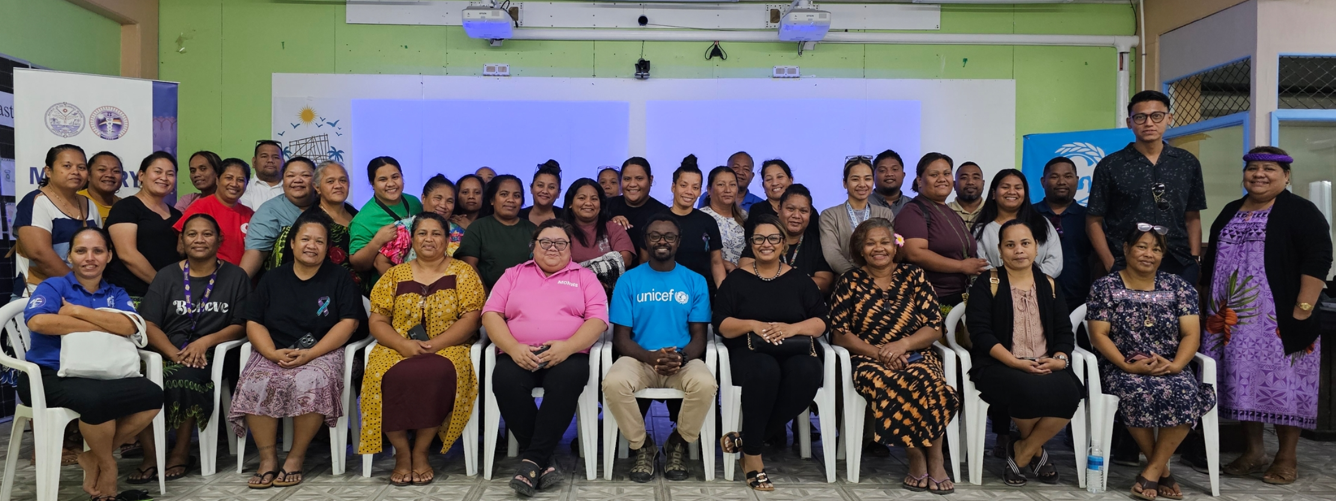
UNICEF and the Ministry of Health and Human Services (MoHHS) jointly conducted a one-day Social and Behavior Change Communication (SBCC) training in Majuro for 45 frontline health workers. The training aimed to strengthen communication of key Early Childhood Development (ECD) messages and improve maternal and child health and nutrition outcomes across the Marshall Islands.
Participants represented a range of essential services, including prenatal and postnatal care, maternal and child health, immunization, health promotion, non-communicable disease prevention, and Well Child Clinics.
The interactive session emphasized empathy, active listening, and practical communication techniques—reinforcing the critical role of health workers in promoting key ECD behaviors and supporting families with care and compassion. Through demonstrations and role-plays, participants practiced interpersonal communication skills that strengthen trust and relationships with communities.

These efforts align with the national ECD SBCC strategy, which seeks to equip frontline health teams with key ECD messages and integrate them into everyday health service delivery across all levels of care.
The training also highlighted how social protection programs—such as Enra, the Universal Basic Income (UBI) pilot, and Conditional Cash Transfers (CCT)—support families to adopt key ECD behaviors, including timely antenatal visits, child health checkups, immunizations, and preschool attendance, ensuring every child gets the best start in life.
Health workers were encouraged to use every contact point—whether at clinics, during outreach, or through home visits—to:
Share clear and consistent ECD messages; Connect families to essential health and nutrition services;Counsel caregivers on responsive caregiving, play, and early stimulation; Identify developmental delays early and refer appropriate; and Model positive, nurturing caregiving behaviors that strengthen family well-being.
This Majuro workshop follows earlier sessions that trained 16 Community Health Outreach Workers (CHOWs) on October 17, 2025, and 9 MoHHS personnel in Ebeye on October 22, 2025—completing the first round of SBCC capacity-building workshops supported by UNICEF and the World Bank.
Closing the training, Secretary of Health Mrs. Francyne Wase-Jacklick commended the participants for their dedication and commitment, noting that the workshop’s lessons will have a ripple effect in improving health outcomes for families across the Marshall Islands.
“Communication is not only about what we say, but how we say it—with empathy, respect, and compassion. When we communicate with care, we build stronger relationships with families and communities, helping every child grow, learn, and thrive,” she said.
Both UNICEF Pacific and MoHHS expressed appreciation to the World Bank Pacific for its continued support in strengthening national capacity to deliver essential RMI Early Childhood Development Program - ECD and health services to every child and family in the Republic of the Marshall Islands.
For more information, please contact:
//END//

